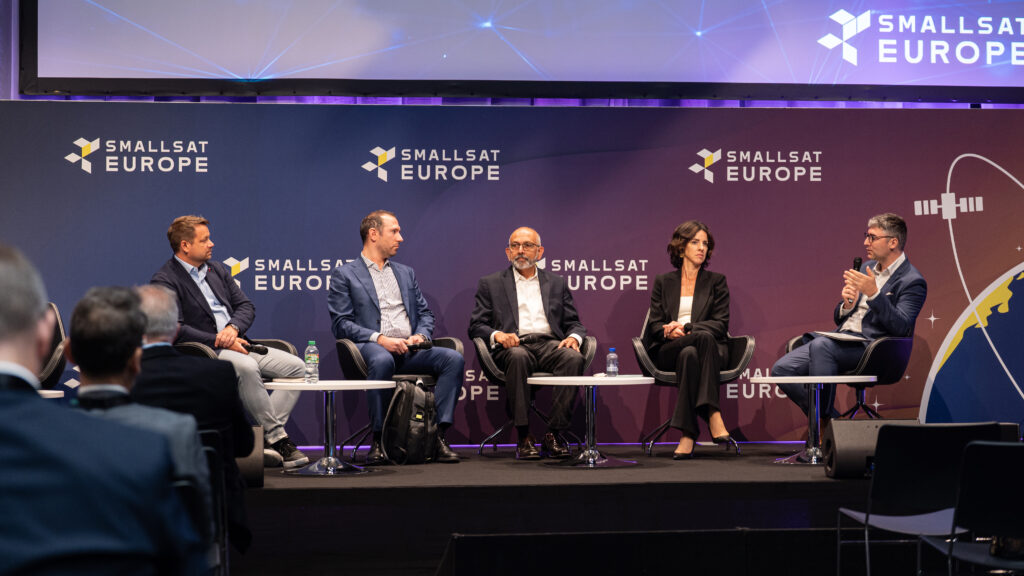By Chris Forrester

Maxime Puteaux (Principal, Novaspace) moderated this panel. Novaspace is a major supplier of data and analysis focusing on upstream consulting and market intelligence related to industry issues such as satellite manufacturing, space transportation, and in-orbit operations.
Dennis Moore (CCO, Reflex Aerospace). Reflex is a German-based satellite manufacturer delivering tailor-made platforms for commercial and defence customers. Reflex is working toward challenging Europe’s existing major satellite suppliers. It enjoys the highest security clearances. Reflex was enthusiastic about small satellites. But he cautioned that government procurement was not designed with small companies in mind. For example, no small company was willing to bid in the IRIS2 project. If there isn’t a realistic alternate to the giant players, then how can small satellite providers grow?
Flavio Giudice (NCIA Space Technology Division Deputy Head, NATO). Mr Giudice has been one of the pioneers of the NATO Space Domain, contributing to the development of NATO’s Space policies and working on the creation of NATO’s Space operational capabilities. Giudice said that small satellites were appealing because they can be replaced very easily in the event of a threat. NATO relies on multiple service providers for additional resilience. He recognised that there was a need for a Space Commercial Strategy and this will be released in the next few months. He also reminded delegates that NATO was going to be buying “more and more stuff”.
Dr. Rajeev Gopal (VP Advanced Programs, EchoStar (Hughes)). He added that big satellites represent juicy targets, and consequently smaller satellites are attractive. They can be more easily updated, for example. The demand is there. We have wars going on, we have jamming, and it is prudent to be aware of the threats which exist. We are beginning to see progress and awareness coming from some countries, and this is welcome. But we need resiliency, and this can be provided with small satellites.
Aurelie Bressollette (CEO, Latitude). A launcher company founded in 2019 by a team of engineers and space enthusiasts and based in Reims, France, the company has grown into a driving force in European spaceflight. She said it was time for Europe to accelerate their procurement methods for small satellites and to recognise that small craft are resilient.
